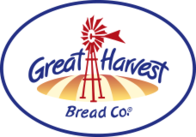Real Food. Real People.
Whole grains should be part of a healthy diet, and that's a fact. If you're having trouble thinking about which whole grains you should be eating, here's a list of the ones that should be present in your meals.
Whole grains should be unavoidable. Unfortunately, many people don't see it that way. Grains are an essential and beneficial part of a healthy diet. Going for whole grains is the smartest way to go. There's an endless world of possibilities when it comes to adding whole grains to your diet. You don't need to limit yourself to bread, pasta, and rice to enjoy their full benefits. Great Harvest of Newtonville brings you a list of whole grains you should be eating to improve your daily diet.
Brown Rice
White rice may be the easier option. Unfortunately, it’s stripped of 75 percent of its nutrients, unlike brown rice. In a single cup of cooked brown rice, you can find five grams of protein. Brown rice offers vitamin E (great for the skin), magnesium, manganese, phosphorus, and B vitamins. It can easily replace white rice in many recipes, even more so if you are celiac or gluten-sensitive. Brown rice is the way to go if you're looking to lose weight.Quinoa
Quinoa is actually a seed, but for all intents and purposes, it’s referred to as a grain. This South American ancient grain packs more protein than any other grain. Quinoa has an enormous amount of iron, magnesium, B vitamins, and fiber. Like many other whole grains, quinoa lowers the risk of heart disease, diabetes, and obesity. It’s also proven to aid people who suffer from migraines. Its nutty flavor will surely charm your whole family.Whole Wheat
The easiest grain you can add to your diet is whole wheat. You can find it in your fresh bakery bread and pasta, just be sure that it comes from 100% whole wheat. Whole wheat is rich in vitamin B and E and also low fat. Don’t be fooled by multigrain or wheat products, what you need is a product that’s truly whole wheat and has at least two or three grams of fiber per serving. For a deliciously healthy whole wheat bread option head to Great Harvest of Newtonville. They freshly mill whole wheat in their bakery every morning to create fantastic bread choices. Give them a call at (617) 928-1162 to learn all about their bakery products.Buckwheat
Buckwheat is a gluten-free seed, commonly used in pancake mix. It’s rich in niacin, vitamin B6, magnesium, zinc, and iron. Buckwheat is one of the grains that people living with celiac disease can tolerate because it’s easy to digest. Among its many benefits, it helps ease PMS and improve nerve functions.Oats
Oats are a classic breakfast staple that is high in protein and fiber. Oats help lower cholesterol, stabilize blood sugar, reduce the risk of heart disease and aid in sleep. You don’t need to worry about specifically looking for whole oats, as long as oats are in the ingredient list you’ll know it’s made from whole oats. Watch out for instant oatmeal that often contains high-fructose corn syrup, which is known to have traces of mercury. You can find oats in many presentations: steel-cut, rolled, flakes, bran, and even flour.Barley
Barley has been valuable since the Stone Age. It helps aid regular bowel movement due to its vast amounts of soluble and insoluble fiber. It’s low on the glycemic index, so you know it won’t spike up your blood sugar. Instead, it will lower your cholesterol and keep you full longer. Barley has a high amount of potassium, selenium, vitamin E, magnesium, copper, iron, calcium, among other nutrients. This grain can be used in soups, stews, salads, desserts, and turned into flour. Lastly, barley helps prevent gallstones.Freekeh
Freekeh is an Arabic grain that has up to four times more fiber than brown rice. It’s basically wheat that has been harvested young, which it’s why it packs more protein and fiber. Afterward, it’s roasted to give it a natural smokiness. Freekeh acts like prebiotic once it’s in your stomach, stimulating the growth of healthy bacteria. It’s rich in antioxidants, as well. You can find it at Middle Eastern markets or natural-food stores.Corn
To gain the full benefits of eating corn, you need to be sure it’s whole. Corn is a great source of fiber, B vitamins, magnesium, and phosphorus. It helps promote healthy gut flora growth, control blood sugar, and ward of diabetes, heart disease, and chronic inflammation. The best way to get your dose of whole corn is by eating popcorn. Be sure that you get organic popcorn kernels and pop them the old fashioned way on the stovetop. You can also purchase corn tortillas and chips.Get Your Whole Grain Bread from Your Local Great Harvest Bakery in Newtonville
You can get your recommended daily dose of whole grains with a delicious loaf of whole grain bread from Great Harvest of Newtonville. To learn about their other bakery products and their nutritional value call (617) 928-1162.
Great Harvest Bread of Newtonville
We'd love to be in touch with you

